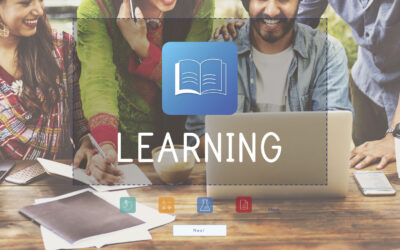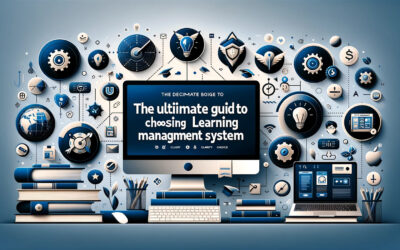Introduction
In education, Learning Management Systems (LMS) are changing how we learn. This guide explores how LMS platforms are reshaping education, making it more accessible and personalized. We’ll look at collaborative tools, data insights, feedback loops, and gamification elements that enhance the learning experience.
Accessibility
Modern Learning Management System (LMS) platforms break down geographical barriers, providing access to educational materials anytime, anywhere. This revolutionizes education by enabling remote or distance learning, extending educational opportunities to individuals previously hindered by traditional constraints.
Personalized Learning
LMS platforms empower educators to customize content and assignments to fit the unique needs, preferences, and learning styles of individual students. Through personalized learning experiences, students become more engaged and motivated, enhancing the effectiveness and richness of their educational journey.
Collaborative Learning
LMS platforms act as collaboration hubs, offering tools like discussion forums, group projects, and shared documents to facilitate peer-to-peer learning and teamwork. By fostering collaboration, LMS platforms enrich the overall learning experience, creating a dynamic and interactive educational environment.
Data-Driven Insights
LMS analytics provide educators with valuable insights into student progress, engagement levels, and performance metrics. With this data, educators can make informed decisions, identify areas for improvement, and implement targeted interventions to support student success, ultimately enhancing the learning experience.
Continuous Feedback
LMS platforms enable ongoing feedback loops between educators and students, promoting timely assessment and refinement of learning outcomes. This fosters a culture of continuous improvement, where students receive constructive feedback to support their academic growth and development, fostering a cycle of iterative learning and progress.
Gamification
By incorporating gamification elements, LMS platforms boost student engagement and motivation with features like rewards, leaderboards, and achievements. Gamification adds an element of fun to learning, encouraging active participation and creating a positive educational atmosphere.
Mobile Learning Experience
Modern LMS platforms prioritize mobile compatibility, allowing learners to access educational content seamlessly across various devices. Mobile learning offers flexibility and convenience, enabling students to engage with course materials on smartphones and tablets, anytime and anywhere, enhancing accessibility and fostering continuous learning.
Multimedia Integration
LMS platforms integrate multimedia elements such as videos, audio recordings, interactive presentations, and virtual simulations to enhance the learning experience. By catering to diverse learning preferences and offering dynamic content formats, multimedia integration enriches engagement and comprehension, making learning more immersive and effective.
Adaptive Learning Paths
Adaptive learning algorithms within LMS platforms analyze individual student performance and preferences to dynamically adjust learning paths and content delivery. By personalizing the learning journey based on each student’s strengths, weaknesses, and pace of learning, adaptive learning paths optimize retention and mastery, ensuring that students receive tailored support and challenges.
Social Learning Communities
LMS platforms facilitate the creation of social learning communities where students can connect, collaborate, and share knowledge and resources. Through features such as discussion boards, peer review forums, and virtual study groups, social learning communities promote peer-to-peer interaction, collective problem-solving, and knowledge co-construction, fostering a sense of belonging and camaraderie among learners.
Conclusion
Learning Management Systems are transforming education, offering new possibilities for students and teachers. With improved access, personalized learning, collaboration tools, data insights, feedback loops, and gamification, education is becoming more dynamic and engaging. As we embrace LMS technology, we’re creating a future where learning is easier, more flexible, and more enriching for everyone involved.
Search
Categories
- AI 3
- Analytics & Data Science 16
- Blogs 7
- Brand Identity 21
- Business 10
- CMS & LMS 22
- Development 1
- Digital Marketing 19
- Digital Signage 12
- E-commerce 6
- Enterprise solution 15
- Events 1
- Internet of Things 9
- Mobile App Development 15
- News 5
- Open Source Development 12
- SEO Search engine optimization 2
- Uncategorized 3
- Web Design 1
- Web Development 19
- Web Security and Performance 18
- Website Development 1
- WordPress Development 3







